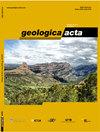Magnetic mineralogy of Variscan granites from northern Portugal: an approach to their petrogenesis and metallogenic potential
IF 2
4区 地球科学
Q2 GEOLOGY
引用次数: 4
Abstract
Northern Portugal is characterized by the occurrence of numerous W hydrothermal deposits spatially associated with granites. The primary goal of this work is to establish a relationship between the magnetic behavior of the granites and the redox conditions during magma genesis, as this can influence the occurrence of mineralizations, namely of W (Mo). To this end, the magnetic mineralogy of the granites of the Lamas de Olo Pluton, a posttectonic pluton in northern Portugal, with associated W (Mo) occurrences was characterized and compared with the magnetic mineralogy of other post-tectonic Variscan plutons. This pluton is composed of different biotite granites: Lamas de Olo, Alto dos Cabecos and Barragem. To better characterize its magnetic behavior, different analytical techniques that complement previous magnetic susceptibility studies were performed. The magnetic mineralogy of Lamas de Olo Pluton was then compared with other post-tectonic Variscan plutons such as the Vila Pouca de Aguiar, Peneda-Geres and Lavadores-Madalena plutons. The presence of magnetite in some of these granites is important because it points to melt-oxidized conditions not commonly found in Iberian Variscan granites. Our study shows that granite areas where magnetite and/or magnetite/ilmenite coexist are important targets for W (Mo) mineralizations. The results indicate that a few plutons have granites with a complex redox history which leads to the formation of magnetite and ilmenite.葡萄牙北部瓦里斯坎花岗岩的磁矿物学:岩石成因和成矿潜力探讨
葡萄牙北部的特点是出现了大量与花岗岩空间相关的W热液矿床。这项工作的主要目标是建立花岗岩的磁性行为与岩浆生成过程中的氧化还原条件之间的关系,因为这会影响矿化作用的发生,即W(Mo)的发生。为此,对葡萄牙北部构造后深成岩体Lamas de Olo Pluton花岗岩的磁性矿物学进行了表征,并与其他构造后华力西深成岩体的磁性矿物学相比较。该深成岩体由不同的黑云母花岗岩组成:Lamas de Olo、Alto dos Cabecos和Barragem。为了更好地表征其磁性行为,采用了不同的分析技术来补充以前的磁化率研究。然后将Lamas de Olo Pluton的磁性矿物学与其他后构造华力西深成岩体进行了比较,如Vila Pouca de Aguiar、Peneda Geres和Lavadores Madalena深成岩体。其中一些花岗岩中磁铁矿的存在很重要,因为它表明了伊比利亚华力西期花岗岩中不常见的熔融氧化条件。我们的研究表明,磁铁矿和/或磁铁矿/钛铁矿共存的花岗岩区域是W(Mo)矿化的重要目标。结果表明,少数深成岩体具有复杂的氧化还原历史,导致磁铁矿和钛铁矿的形成。
本文章由计算机程序翻译,如有差异,请以英文原文为准。
求助全文
约1分钟内获得全文
求助全文
来源期刊

Geologica Acta
地学-地质学
CiteScore
2.50
自引率
6.70%
发文量
13
审稿时长
>12 weeks
期刊介绍:
- Relevant conceptual developments in any area of the Earth Sciences.
- Studies presenting regional synthesis.
- Thematic issues or monographic volumes presenting the results from one or more research groups.
- Short papers reflecting interesting results or works in progress.
- Contributions and results from Research Projects, Workshops, Symposiums, Congresses and any relevant scientific activity related to Earth Sciences.
- Geologica Acta aims to stimulate rapid diffusion of results and efficient exchange of ideas between the widespread communities of Earth Science researchers (with special emphasis on Latinamerica, the Caribbean, Europe, the Mediterranean
 求助内容:
求助内容: 应助结果提醒方式:
应助结果提醒方式:


